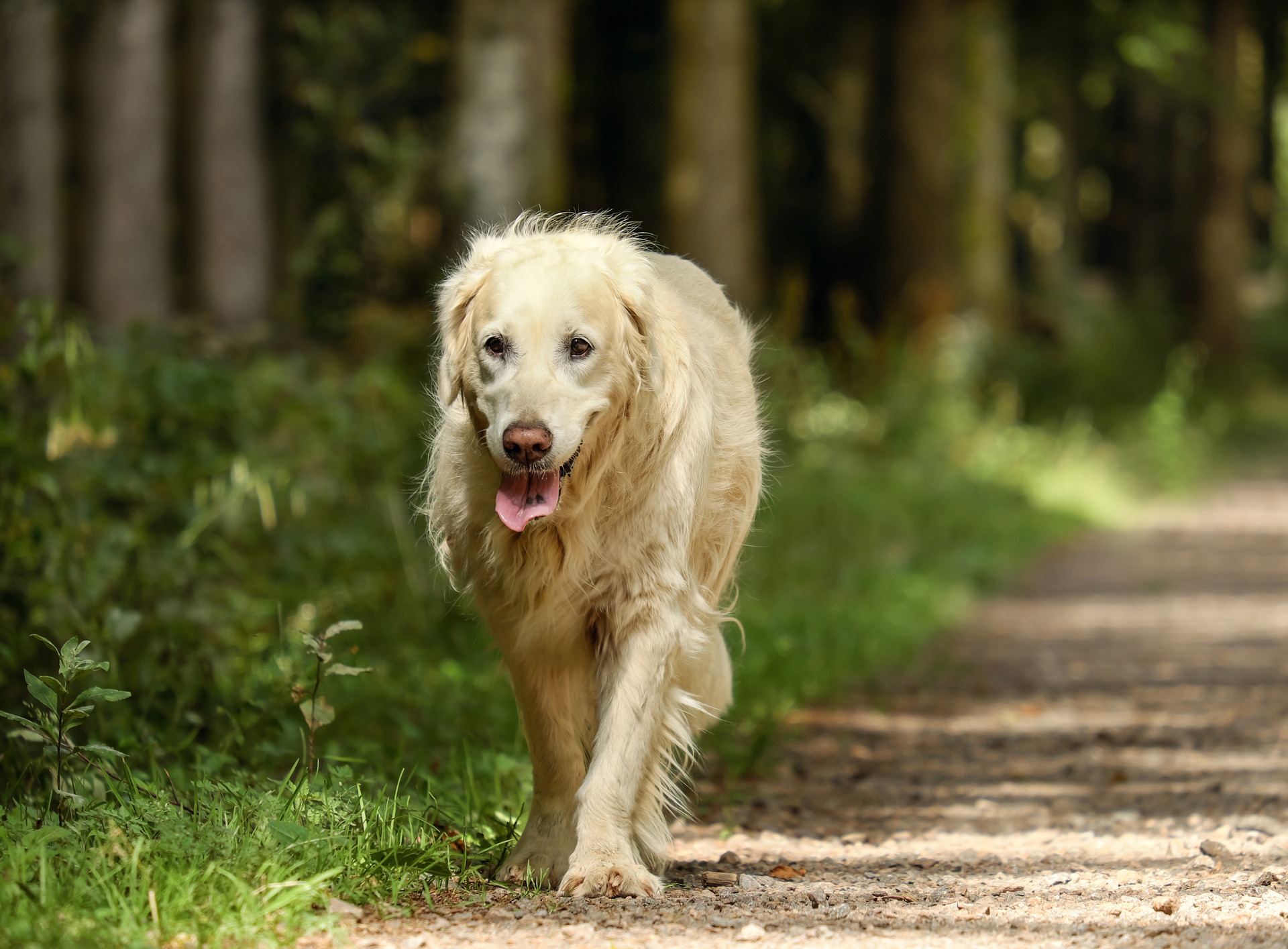Regardless of the famous adage which proclaims the opposite, you really can teach an old dog new tricks. Actually, it is never really too late to teach your faithful companion to learn and exhibit new behaviors, even if they never had any formal training up to this point.
Like humans, dogs who exist in an environment of stimulation and activity tend to be able to learn better. If you have acquired a senior dog not accustomed to interaction or not trained as a puppy, you should ensure that they have plenty of attention and activity in order to maximize learning.
Note: Older dogs have less agility and stamina than youthful canines – therefore, this article primarily references teaching an older dog social behaviors, not necessarily to jump through hoops. Be realistic about those things you are looking for your dog to learn.

Train Their Brain
Mature dogs may have experienced changes in their brain that can curtail their ability to learn. Before embarking on a structured training regimen, you may wish to ask your veterinarian about incorporating brain health supplements – such as fatty acids – into your dog’s daily diet.
Your veterinarian will also be able to ascertain if your dog has any other conditions, such as canine cognitive disorder (“Doggie Alzheimer’s”), that may hinder his learning capability. If your older dog exhibits signs of senility – such as disorientation, increased sleep, loss of house-training, decreased hearing, standing in the corner, or barking aimlessly at inanimate objects – you may not be able to train them as successfully. Check with your veterinarian as there are medications which can help with this condition.
Once you know your older dog is cognitively ready, it’s time to train.
Good Behavior
Even an older dog can make the connection between performing a behavior and receiving a reward. Just like a younger dog, they will eventually understand which behavior you are expecting of them, as it associates with a reward.
In many respects, an older dog who has never been trained has no real way of interacting with their humans. Trainers of these animals often report that once it “clicks” how behaviors and rewards are related, they quickly pick up behaviors, much more quickly than younger puppies. Perhaps they are relieved to finally be communicating and interacting with their favorite people!
The evidence overwhelmingly supports that older dogs will happily keep trying to learn new behaviors as long as your interaction with them is positive. Verbal or physical punishment may cause them to shut down, while a soft voice and smile will reassure them and encourage them to try again.
Adapt to Their Needs
You may find that methods which worked with other animals don’t work with your senior dog’s particular situation. For instance, if your older dog is experiencing hearing loss, you may need to utilize hand signals versus verbal cues.
Consistency is Key
The more consistent you are with your reactions and rewards, the faster your older dog will learn. Keep in mind that if you are dealing with trying to change a behavior they have exhibited for 10 years, it will take a lot more patience than simply teaching a new trick. Old habits die hard for all of us!
Most dogs, no matter their age, are highly reinforced by the opportunity to learn. Training functions as a wonderful way to keep both their minds and bodies active, even as other capabilities may be diminishing. Older dogs still take great pleasure in learning and interacting with their people, even until their last days.
Gulf Coast K9 Dog Training provides a wide variety of canine training and obedience programs, serving the Sarasota and Bradenton metro area.




